7 Cheeses That Dietitians Say Support Belly Fat Loss
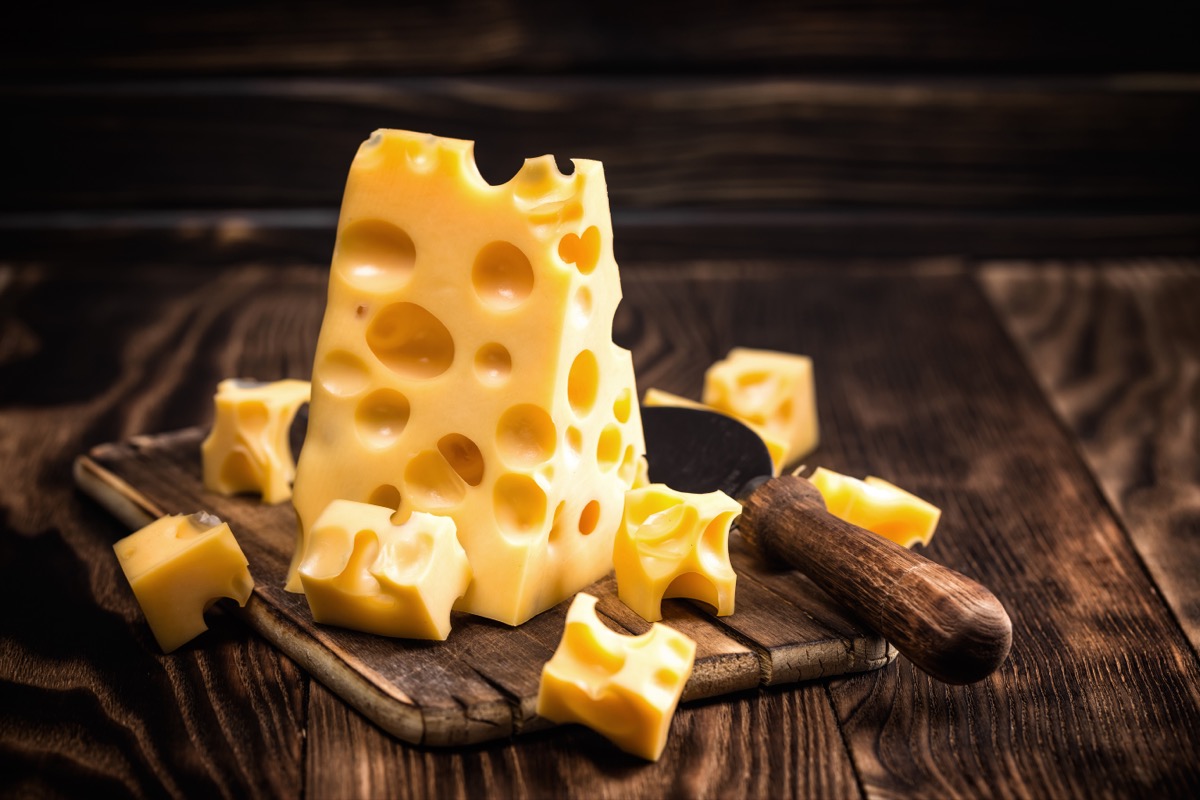
When it comes to slimming down your waistline, cheese is usually on the list of foods to cut out because many are high in saturated fat, which can increase your bad cholesterol level and cause a higher risk of stroke or heart disease. But fortunately, not all cheese is created equal and many are actually recommended to consume while trying to meet weight loss goals.
“A lot of cheeses are rich in protein, healthy fats, and key nutrients like calcium, which support muscle maintenance, metabolic health, and hormone balance,” says Terry Tateossian, an ISSA Nutritionist and ISSA Personal Trainer, IIN Hormone Specialist, IIN Emotional Eating Coach, and the Founder of THOR: The House of Rose.
She explains, “In fact, if you’re over 40 and focused on body recomposition or reducing overall body fat, high-quality cheeses can support your goals (when they are portioned properly!!) and paired with the right foods.”
If you’re trying to lose belly fat and want to support your wellness aspirations, here are seven cheeses Tateossian recommends.
Cottage Cheese
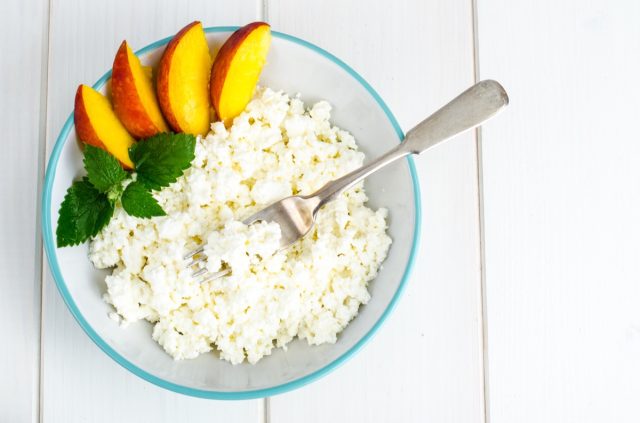
Whether you love it with crackers, veggies, in a smoothie or just plain, cottage cheese is a delicious go-to snack that can help support weight loss.
“It’s incredibly high in casein protein, which digests slowly and keeps you full for hours,” says Tateossian. “A half-cup has about 14 grams of protein for just 90–110 calories, depending on the fat content. I recommend choosing the 0% Fat option and pairing it with berries and chia seeds for a blood-sugar-friendly snack that builds lean muscle while satisfying cravings.”
Parmesan Cheese
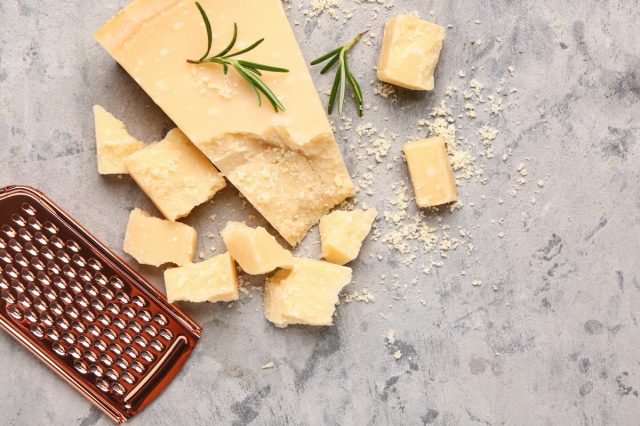
Don’t feel guilty by adding Parmesan cheese to your salads. Tateossian encourages it. Just remember a little goes a long way because it’s that flavorful.
“It’s naturally low in lactose and packs 10g of protein per ounce”, she explains. “You can use it as a topping on eggs, veggies, or salads to boost protein and satisfaction without needing large amounts. The more satisfied you are, the fewer blood sugar spikes and snacking impulses you’ll have later.”
Mozzarella
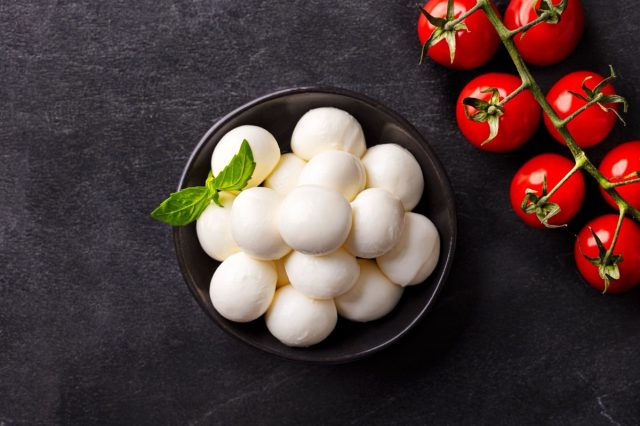
Mozzarella is so good melted on top of bread, in salads or pretty much anyway you enjoy eating it.
“The cheese has a creamy texture and mild flavor with a great balance of protein and fat,” says Tateossian. She explains, “Part-skim mozzarella provides around 7g of protein per ounce for about 70–80 calories. It’s a smart choice when you want to feel full but still stay on track.”
She adds, “Try string cheese as a portable, portion-controlled snack or use fresh mozzarella with tomatoes and olive oil for a belly-friendly caprese.”
Feta
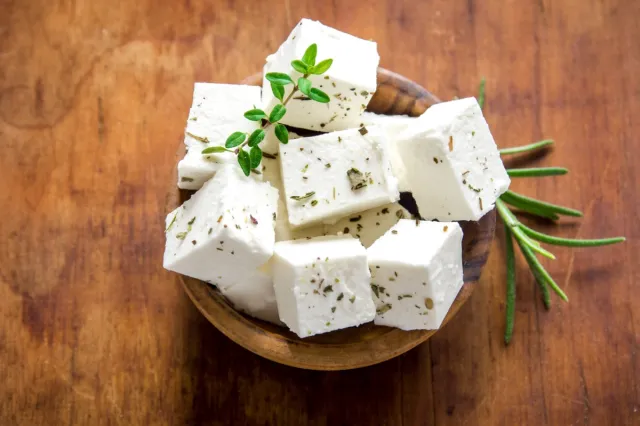
Sprinkle on top of your salads, dips and sauces for extra flavor and a nutritional boost.
According to Tateossian, it’s “Naturally lower in fat and often easier to digest, especially for women sensitive to cow’s milk. A small sprinkle gives bold flavor, and an ounce contains about 4–5g of protein for 70–80 calories.”
She says, “I recommend it crumbled on salads with greens, protein, and a little olive oil to support fullness, hormone health, and metabolism.”
Goat Cheese
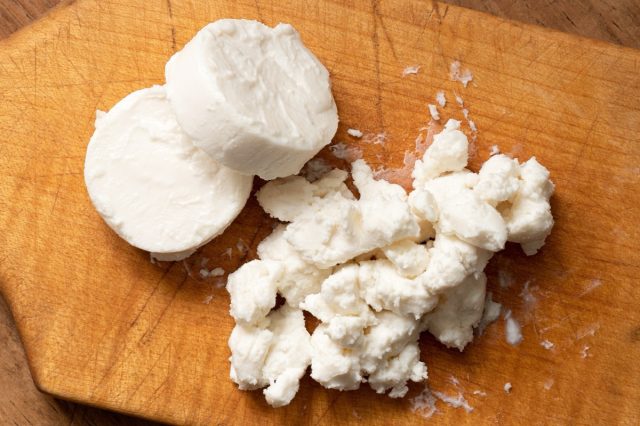
Goat cheese has a unique flavor that’s versatile and lower in lactose so it’s easy on people who struggle with eating cheese.
“Tangy, creamy, and rich in short-chain fatty acids, goat cheese can actually support fat metabolism,” says Tateossian. “One ounce offers 5g of protein and healthy fats that help regulate hunger hormones like leptin.”
Ricotta
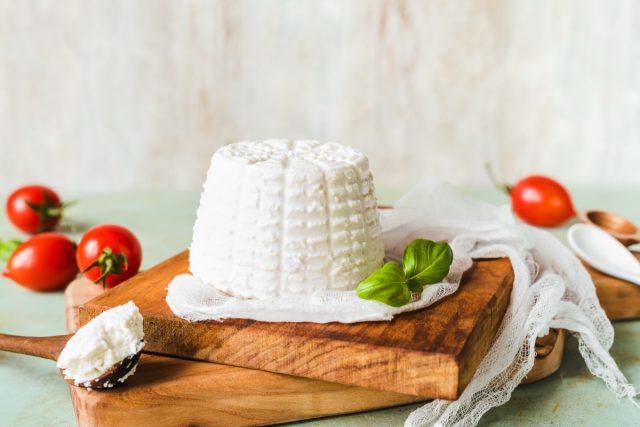
Ricotta has a mild sweet flavor with a smooth texture that’s ideal for savory and sweet dishes. Whether you love it in pastas, bakery items like cheesecake or as an ingredient in dips, it’s a crowd-pleaser. Plus, it’s healthy.
“Ricotta is a great source of whey protein, which supports muscle repair and fat burning,” says Tateossian. “It’s soft and spreadable, so you can use it on toast, in smoothies, or even as a healthy dessert with cinnamon and cacao.”
She adds, “A half-cup provides about 14g of protein and 170 calories.”
Swiss Cheese
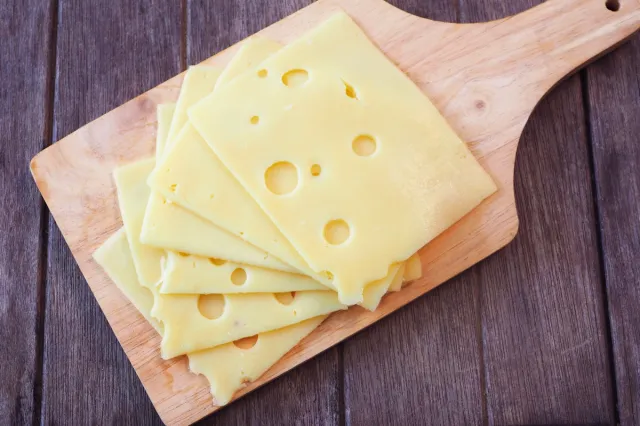
Swiss cheese has a distinct taste that isn’t for everyone, but it’s ideal for sandwiches, salads and hot dishes like omelets and burgers.
According to Tateossian, “Swiss is a low-sodium, high-protein option that’s perfect for building satisfying meals.”
She explains, “One slice has about 8g of protein and fewer carbs than most cheeses. It’s also rich in calcium and B12, which support energy production and body composition. I suggest pairing it with a high-fiber cracker or hard-boiled eggs for a protein-packed mini meal.”